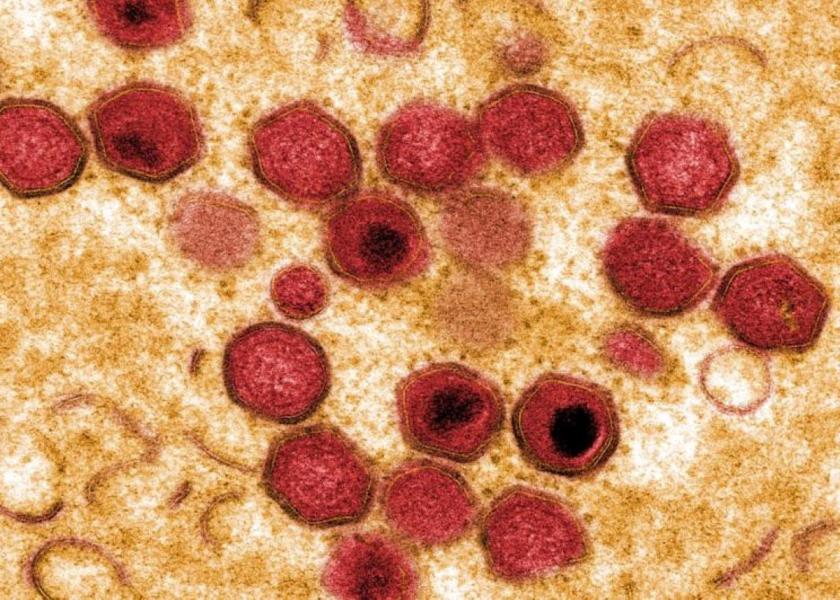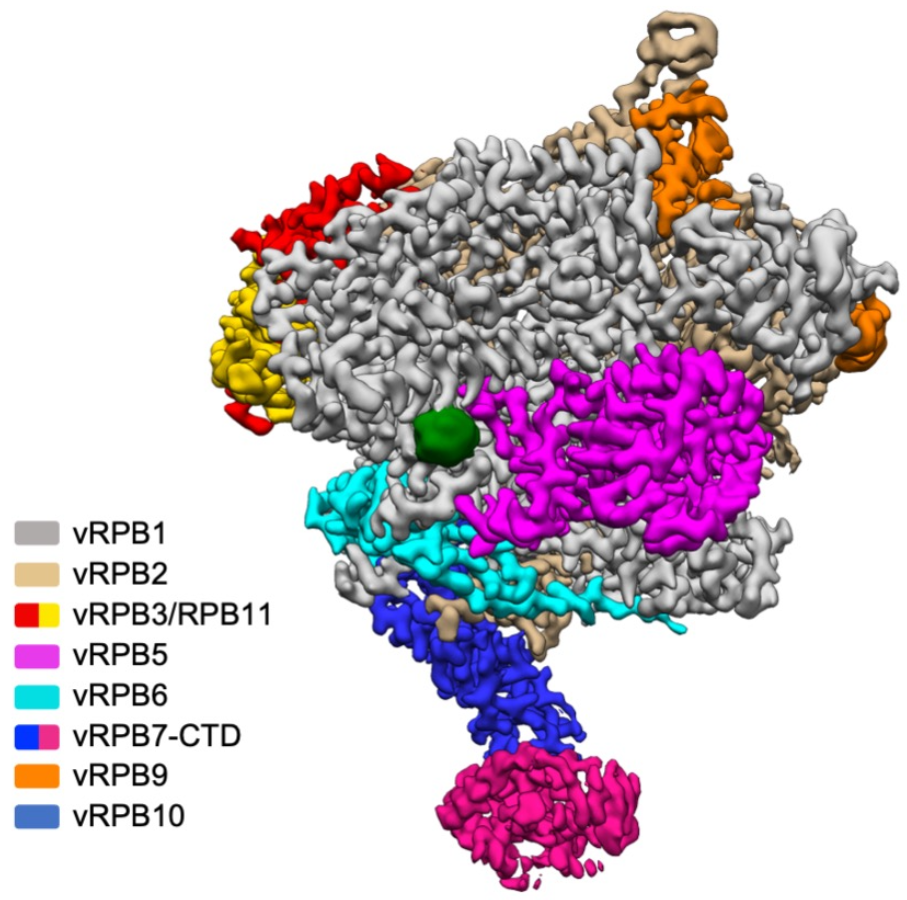New Study Examines How African Swine Fever Virus Replicates

Scientists have taken a major step forward in understanding how African swine fever (ASF) virus genes are controlled and expressed, specifically the process by which the gene’s coded information becomes an active function in a cell.
Researchers from London's Global University (UCL) Institute of Structural and Molecular Biology and The Pirbright Institute are joining together to discover more about the method the deadly ASF virus enters and replicates in pig cells.
"The ASF virus replicates inside a host cell and uses its own machinery to transcribe its genes into mRNAs – molecules that either instruct cells to make a protein required for replication or change the host cell function," The Pirbright Institute said in a release.
In a breakthrough paper published in Nature Communications, the UCL team assembled eight proteins, comprising the ASF virus RNA polymerase, to produce an active complex that can transcribe genes and produce mRNA, the release explained. They proceeded to use cryo-electron microscopy to solve the molecular structure of the RNA polymerase in detail. Although the structure revealed similarities with its host counterpart, it also revealed many unique features that reflect adaptions of this molecular machine to better serve virus gene control.
Experts say this groundbreaking research will enable a team of Pirbright scientists to explore factors affecting how the ASF virus replicates in swine.
“Studying how viruses enter and replicate in the hosts cells is of fundamental importance to understand how to tackle disease," explain Linda Dixon and Chris Netherton, Pirbright’s co-leads on the project. “Knowledge of the RNA polymerase structure and the availability of an active enzyme is an exciting development and will allow for faster screening of antiviral compounds to find those with sufficient specificity and selectivity to be used to control ASFV."

Cryo-Electron Microscopy structure of the 8-subunit core RNA polymerase from ASFV. (Image courtesy of Finn Werner/ UCL).
Pirbright researchers will work to identify additional accessory virus and host factors involved in regulating the temporal expression of ASF virus genes and the packaging of the virus RNA polymerase into particles ready to start a next round of infection, the release said.
“This information is critical to understand the ASFV replication cycle and potential host factors that may limit virus replication," Dixon and Netherton explained.
In 2020, researchers at UCL and Pirbright announced they had mapped the expression of genes across the entire ASF virus genome, which helped to establish their order of activation as well as uncovering new genes. This study will be led by Professor Finn Werner and funded by the Biotechnology and Biological Sciences Research Council (BBSRC) and the Wellcome Trust.
Read More:
The Truth About African Swine Fever Around the Globe
Pirbright's ASF Vaccine Provides Pigs Protection from Severe Disease







